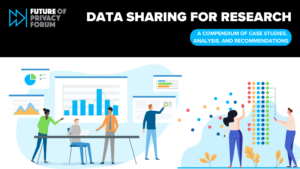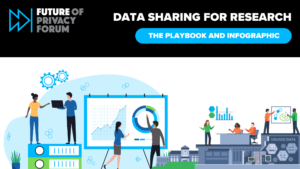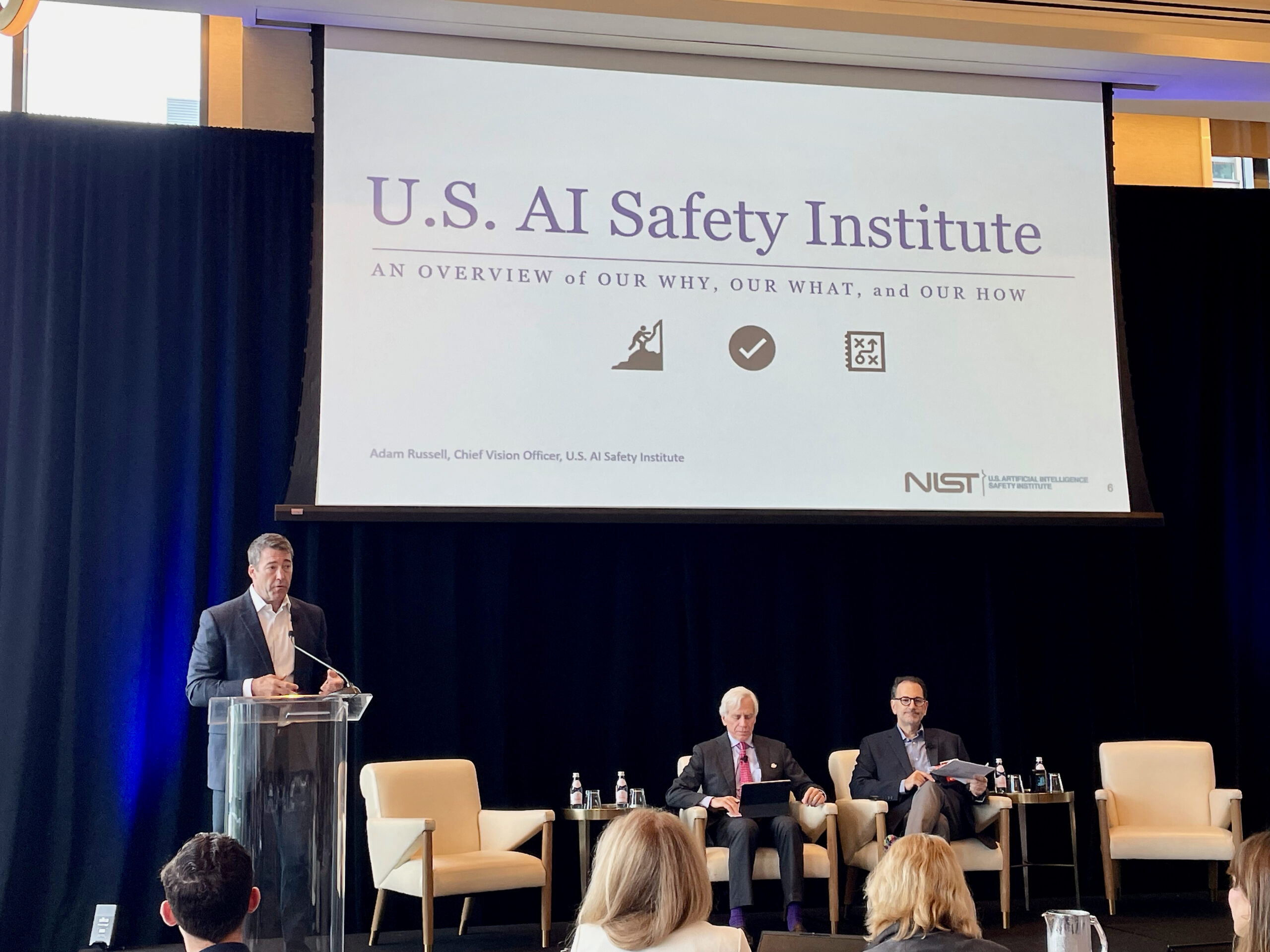Research often requires using sensitive data to answer important questions. The ethical collection and analysis of personal information can be challenging to do while still protecting the privacy of the implicated individuals, honoring informed consent, and complying with other legal obligations. The technology, policies, and ethical considerations for researchers are constantly shifting, sometimes making it difficult to keep up. That’s why FPF engages stakeholders across academia and industry to produce recommendations, best practices, and ethical review structures that promote responsible research. Our work is centered around streamlining, encouraging, and promoting responsible research that respects essential privacy and ethical considerations throughout the research lifecycle. FPF works with policymakers to develop legislative protections that support effective, responsible research with strong privacy safeguards, including hosting events that allow policymakers and regulators to engage directly with practitioners from academia, advocacy, and industry.
FPF also has an Ethics and Data in Research Working Group. This group receives late-breaking analysis of emerging legislation affecting research and data, meets to discuss the ethical and technological challenges of conducting research, and collaborates to create best practices to protect privacy, decrease risk, and increase data sharing for research, partnerships, and infrastructure. Learn more and join here.
Featured
FPF Launches Effort to Advance Privacy-Enhancing Technologies in Support of AI Executive Order, Convenes Experts, and Meets With White House
FPF’s Research Coordination Network will support developing and deploying Privacy-Enhancing Technologies (PETs) for socially beneficial data sharing and analytics. JULY 9, 2024 — Today, the Future of Privacy Forum (FPF) is launching the Privacy-Enhancing Technologies (PETs) Research Coordination Network (RCN) with a virtual convening of diverse experts alongside a high-level, in-person workshop with key stakeholders […]
AI Forward: FPF’s Annual DC Privacy Forum Explores Intersection of Privacy and AI
The Future of Privacy Forum (FPF) hosted its inaugural DC Privacy Forum: AI Forward on Wednesday, June 5th. Industry experts, policymakers, civil society, and academics explored the intersection of data, privacy, and AI. In Washington, DC’s southwest Waterfront at the InterContinental, participants joined in person for a full-day program consisting of keynote panels, AI talks, […]
FPF Awarded NSF and DOE Grants to Advance White House Executive Order on Artificial Intelligence
The Future of Privacy Forum (FPF) has been awarded grants by the National Science Foundation (NSF) and the Department of Energy (DOE) to support FPF’s establishment of a Research Coordination Network (RCN) for Privacy-Preserving Data and Analytics. FPF’s work will support the development and deployment of Privacy Enhancing Technologies (PETs) for socially beneficial data sharing […]
Overcoming Hurdles to Effective Data Sharing for Researchers
In 2021, challenges faced by academics in accessing corporate data sets for research and the issues that companies were experiencing to make privacy-respecting research data available broke into the news. With its long history of research data sharing, FPF saw an opportunity to bring together leaders from the corporate, research, and policy communities for a conversation […]
Organizations must lead with privacy and ethics when researching and implementing neurotechnology: FPF and IBM Live event and report release
A New FPF and IBM Report and Live Event Explores Questions About Transparency, Consent, Security, and Accuracy of Data The Future of Privacy Forum (FPF) and the IBM Policy Lab released recommendations for promoting privacy and mitigating risks associated with neurotechnology, specifically with brain-computer interface (BCI). The new report provides developers and policymakers with actionable […]
Data Sharing … By Any Other Name
There are many different uses of the term “data sharing” to describe a relationship between parties who share data from one organization to another organization for a new purpose. Some uses of the term data sharing are related to academic and scientific research purposes, and some are related to transfer of data for commercial or government purposes. ..it is imperative that we are more precise which forms of sharing we are referencing so that the interests of the parties are adequately considered, and the various risks and benefits are appropriately contextualized and managed.
Five Things Lawyers Need to Know About AI
Lawyers are trained to respond to risks that threaten the market position or operating capital of their clients. However, when it comes to AI, it can be difficult for lawyers to provide the best guidance without some basic technical knowledge. This article shares some key insights from our shared experiences to help lawyers feel more at ease responding to AI questions when they arise.
Brain-Computer Interfaces: Privacy and Ethical Considerations for the Connected Mind
BCIs are computer-based systems that directly record, process, analyze, or modulate human brain activity in the form of neurodata that is then translated into an output command from human to machine. Neurodata is data generated by the nervous system, composed of the electrical activities between neurons or proxies of this activity. When neurodata is linked, or reasonably linkable, to an individual, it is personal neurodata.
Automated Decision-Making Systems: Considerations for State Policymakers
In legislatures across the United States, state lawmakers are introducing proposals to govern the uses of automated decision-making systems (ADS) in record numbers. In contrast to comprehensive privacy bills that would regulate collection and use of personal information, automated decision-making system (ADS) bills in 2021 specifically seek to address increasing concerns about racial bias or […]
A Look Back at the Role of Law and the Right To Privacy in LGBTQ+ History
By Katelyn Ringrose, Christopher Wolf Diversity Law Fellow at the Future of Privacy Forum, and Christopher Wood, Executive Director of LGBT Tech, with thanks to Connor Colson, FPF Policy Intern. LGBTQ+ rights are, and have always been, linked with privacy. Over the years, privacy-invasive laws, practices, and norms have been used to oppress LGBTQ+ individuals […]














